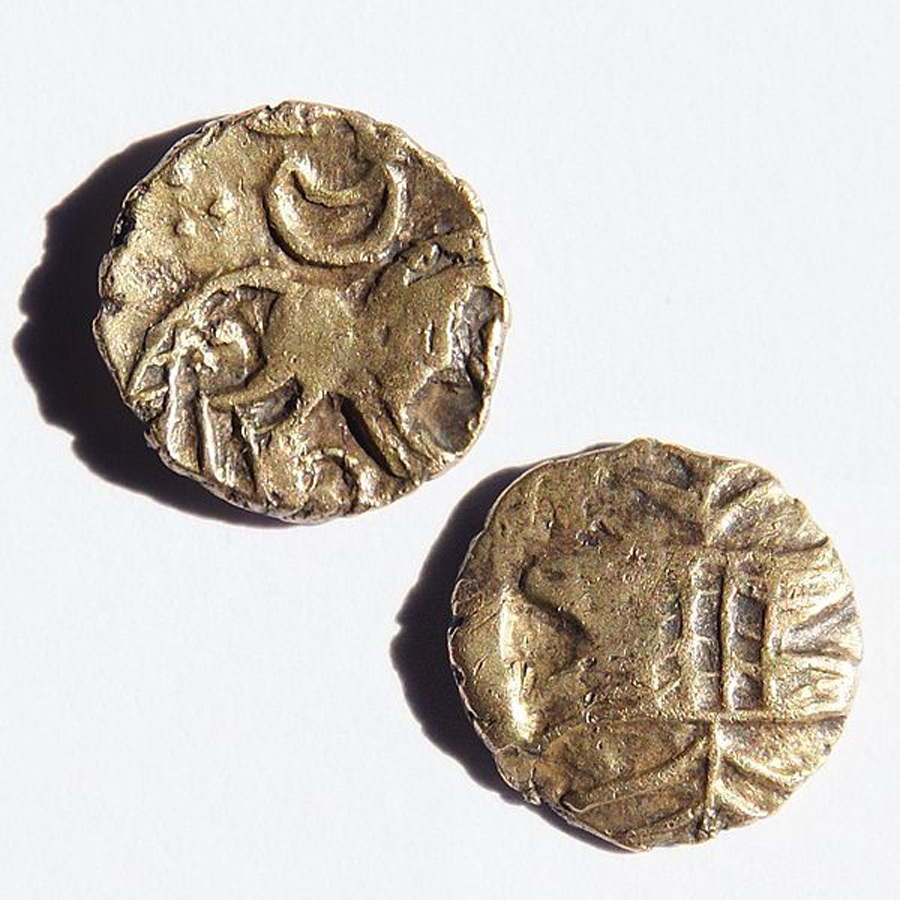A warrior queen in the truest sense, Boudica preferred to die by poison instead of surrendering her freedom to the hands of the Roman forces.
A true display of the dauntless courage of a woman and queen in the face of adversity is what makes Boudica’s life story the subject of English folk tales to this day. Through the ages, there have been numerous revolts and battles led by men, but is there any tale more riveting than one led by the indomitable spirit of a vengeful queen?
For the Roman Empire, a system built on patriarchy, the rise of a woman against its powerful forces was unacceptable. In the battle between the Roman legion and Britons led by Boudica, it is true that the Britons were defeated. However, Boudica remained undefeated in spirit, choosing to die by her own hand.
A Queen of Legend
For such a significant figure in British history, very little is known of Queen Boudica’s early life. She was supposedly born into an elite family in Camulodunum (Colchester) in southern Britain.
Although the exact birth date of Boudica is not known, historians generally agree she was born around 30 AD. Her family were Celtic, and she married the king of Celtic Iceni tribe, Prasutagus. At the age of 18 years, Boudica had become a queen.
The fact that Prasutagus was permitted to remain as King of the Iceni was unusual. From 43 AD, the Roman invasion of southern England had dethroned many of the local English kings. However, Prasutagus was spared, allowed to rule East Anglia as a forced ally of Rome.

Nothing survives in the archaeological records of Boudica. But from the few accounts of Boudica and her life that survive, we are able to piece together a picture of the queen. In one account she is described as a tall woman with reddish hair that fell lower than her waist.
According to other contemporary accounts, she was an intelligent woman known for her piercing glare and harsh voice. Such portrayals need to be taken with a grain of salt, but what is clear in these depictions is the respect that she commanded, at least in her loyal followers.
- The Witch-Queen of England? Revisiting Anne Boleyn’s Guilt
- Stonehenge: A Megalithic Monument of Britain’s Ancient People
Interestingly, during that time women in the upper class of Celtic society held authoritative positions equal to men. It is very much possible that Queen Boudica was seen as an equal partner and ruler to her husband. This certainly seems to be a contributory reason for the Celtic tribes rallying behind her after her husband’s death.
The Iceni
The Iceni lived in an area of Britain known as East Anglia. Today it is a lowland of drained marshes and fens, but at the time the geography was somewhat different, offering significant protection from invaders.
The northern and eastern frontiers were swept by the sea, and the heart of the kingdom itself was densely forested, a challenging land for foreigners to assault. Thus, it was nearly impossible to invade it.
This defensive confidence may have prompted the Iceni response to the Roman invasion in 43 AD. Unlike many of the other kingdoms who fought the Romans, the Iceni kingdom took a neutral stance.
King Prasutagus was ultimately forced to answer to Roman authority as a client king, but his people were allowed to keep their culture, traditions, and freedom somewhat intact. King Prasutagus also chose the option of symbolic Roman authority to ensure the peace and prosperity of his people.
The Turning Point
The freedom of the Iceni tribe came under fire after the death of King Prasutagus in 60 AD. King Prasutagus and Queen Boudica were parents to two daughters, and in his will, the king had left his kingdom to his daughters to rule as his heirs.
However, the Romans only permitted male heirs to inherit. The absence of a male heir exposed the kingdom to threats of invasion, and the Romans did not recognize King Prasutagus’s will.
Thus, shortly after the death of the king, the Iceni kingdom was annexed by Roman troops, and the king’s lands and property were confiscated. The Iceni had been defeated without a single drop of blood being shed.
This might have been all there was to the story, but the Roman’s sought to assert their dominance over the Iceni in a show of power against the royal family. Queen Boudica and her two daughters were publicly flogged. The two princesses were also treated as slaves, and were raped by the Romans.
After this humiliation, Queen Boudica decided to fight the Roman invaders who had so dishonored her, and either win her freedom back or die.
Passing into Legend
Although fighting and defeating huge Roman forces was a nearly impossible task, Queen Boudica was fixed in her determination to revenge herself on the foreign oppressors. Under her able leadership, a strong alliance of Celtic tribes, led by the Iceni, rose up and took the complacent Roman occupiers by surprise.

Shocked by the sudden attack, the Romans fell back and at first, it looked like Queen Boudica was winning. Her troops defeated the Roman Ninth Legion and went on to inflict further defeats on the Roman forces in Camulodunum.
However, as Queen Boudica’s forces advanced west through Londinium (London) and Verulanium (St Albans), they were met by the veteran Roman general Suetonius. His well-prepared troops confronted the rebel forces and defeated them at the Battle of Watling Street.
While the Roman troops were ultimately successful despite Boudica’s greater numbers, their victory was a costly one indeed. Some accounts of the battle claim that Queen Boudica’s army killed as many as 700,000 Romans and pro-Roman British citizens as they cut a bloody, vengeful swathe across Roman Britain.
After the final battle and her final defeat, Queen Boudica vowed to remain uncaptured and never again submit to the yoke of Roman rule. Shortly after their defeat was certain, Queen Boudica and her daughters consumed poison and committed suicide.

Although Queen Boudica failed to save her kingdom in historical accounts, her brave stand against the cruelty of her Roman rulers has passed into legend. Her memory continues to embody the free spirit, independence, bravery, and leadership of the Iceni and the native British. The story of Boudica is one that continues to inspire the British, and women, even today.
Top Image: Boudica, legendary Iceni Queen. Source: Ben Sutherland / CC BY 2.0.
By Bipin Dimri